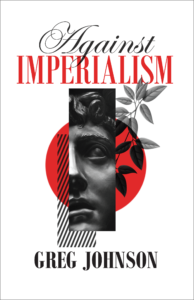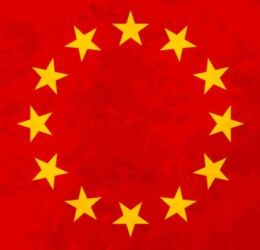The New European Union and Its Superstructure
924 words
Poland joined the European Union 20 years ago. For many, it was the only right and natural choice. The EU was supposed to give us all that we had been denied by the Communist system. EU membership was to guarantee freedom of speech and opinion as well as freedom to conduct business, while ensuring the protection of private property. At the same time, the balance of power between the larger and smaller EU member states made us believe we would preserve our national sovereignty. One could then think that the European Union was the opposite of the Soviet Union, and that membership would give Poland and Poles the benefits they never could have hoped for in the Moscow-controlled Comecon.
Before the accession referendum took place, the Polish Sejm, then controlled by the post-Communist Left, passed a special resolution in 2003 to dispel any possible doubts, declaring that: “The Sejm of the Republic of Poland states that Polish legislation on the moral order of social life; the dignity of the family, marriage and upbringing; and the protection of life shall not be subject to any restrictions by way of international regulations.”
The new European Union

You can buy Greg Johnson’s Against Imperialism here.
It is easy to see that after 20 years the situation has changed dramatically. First, the position of nation-states in the EU has significantly deteriorated. After the reforms brought to the European treaties by the adoption of the Lisbon Treaty, and following the recent changes in 2020 that introduced the “rule-of-law” conditionality regulation [regarding the member states’ access to EU funds], the right of single states to oppose the will of the big EU members has become something of an illusion. Changes in legislation have been accompanied by arbitrary expansion of the powers in the hands of EU institutions through judicial decisions. Brussels’ goal has become the construction of a unified, centralized European state, and its ideals are best expressed in the so-called Ventotene Manifesto, whose author was the Italian Communist Altiero Spinelli. It is to him that modern liberals, Leftists, and even many representatives of the so-called “right” refer as they prepare proposals for reforming the EU.
To bring about a centralized European state, the remnants of the nation-states must be destroyed. Legal and political decisions alone are not enough. What is needed is what the Communists called the superstructure, which is a common ideology. Its goal is on one hand to shatter identities and deconstruct the memory of individual nations, i.e. old customs, laws, and above all religion, and on the other to create a new vision for the future and build a new European nation. In the case of the EU, this superstructure has several major ideological components.
Genderism
The first is genderism, i.e. the view that there are no objectively-given two genders, and that the division between men and women and between male and female roles is merely a social and cultural construct. Adopting this principle must lead to a change in the educational system and a break with past generations. What was sacred and great for them is to become something indifferent, or perhaps even shameful, for people today. The past is a history of repression and patriarchal oppression, and a history of persecution through the norms in force of all that is fluid and indeterminate.
Climatism
Second, climatism and the so-called “green revolution” are designed to destroy the middle class and corral all potentially independent social groups into the state system. A good example of this is the “Fit for 55” plan implemented by the EU with almost maniacal zeal. It leads to the accumulation of economic power in the hands of the state. Economic freedom virtually ceases to exist, as a centralized system of control, surveillance, and observation is to watch over everything. Taxes cease to be imposed for the public interest, and instead become a tool of social engineering, serving to weaken those groups, such as farmers, for whom there is no place in the future.
The utopia of a “zero-carbon” Europe is ultimately destined to lead to widespread impoverishment for almost everyone except, of course, for a narrow group of Eurocrats and the corporations behind them. The whole climate ideology is very much reminiscent of a religious sect where the basic assumption that we are dealing with anthropocentric-induced climate change which is leading to a historical catastrophe is not discussed but merely accepted as dogma, to be taken on faith.
Immigrationism
Finally, the third face of EU ideology is immigrationism – that is, the drive to open national borders and mix all the races, cultures, and nations in Europe. From this point of view, Muslim newcomers from the Middle East and Africa are particularly welcome because they carry the greatest potential for rebellion against the established social and national structures. Thus, the last vestiges of Christianity are disappearing, and the massive influx of immigrants is shattering local and regional identities. Once a certain number of immigrants has been reached, a country also loses the ability to maintain its own cultural memory. One reason for this is that it must constantly take into account the sensitivities and feelings of visitors from other civilizations and adapt to them.
A new European Union is being born before our eyes which has nothing in common with the organization Poland joined 20 years ago, and is reminiscent of the Soviet Union from which we fled.
The above was originally published in Polish in the Do Rzeczy weekly magazine. This translation was published at the English-language Polish conservative site Sovereignty.pl.




